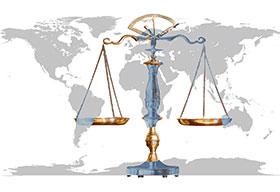

The ‘masterdeeds’ data breach of over 30 million people’s personal records has been cited as South Africa’s worst-ever data breach. The sensitive information in question, including names, addresses, ID numbers, genders, ethnicities and email addresses of people both living and deceased, was extracted from one of South Africa’s top real estate companies, Jigsaw Holdings. In light of this catastrophic data leak, what guarantee do you have that your personal information – and that of your clients – is safe?
Ross Saunders, the director of global technology services at Cura Software Solutions, believes that the data should not have been where it was to begin with, and beyond that, the source website did not have best practices in place to keep any data safe. “Their first mistake was to store an extract of their database on a publicly accessible website. The fact that there were insufficient security measures in place and absolutely no data encryption was a recipe for disaster.”
According to Saunders, the solution is on its way in the form of the General Data Protection Legislation (GDPR) for Europe and the Protection of Personal Information Act (POPIA) for South Africa.
From a South African perspective, POPIA sets the conditions for when it is lawful for someone to process someone else’s personal information. The legislation, centred around integrity and confidentiality, is applied to any natural or juristic person who processes personal information, including large corporates and government.
Similarly, the GDPR is one of the most important changes in data privacy regulation in 20 years and aims to protect all EU citizens from data breaches in an increasingly data-driven world. The GDPR replaces the Data Protection Directive and will be enforced as of 25 May 2018. It could be reasonably expected that the GDPR will become the ‘gold standard’ for data privacy regulation globally.
Data protection laws set principles that controllers must comply with, which include the following:
Lawfulness, fairness and transparency
This means that the processing of information must be lawful and not excessive. Processing should be for a defined purpose, and there should be openness as to any processing activities. The principles and conditions of the law must be followed. In an essential step towards data transparency and consumer empowerment, the new legislation stipulates that the data subjects may obtain confirmation as to whether or not their personal data is being processed, where and for what purpose.
Purpose limitation
The processing of the information must be for a defined purpose and limited from further processing without consent thereafter.
Data minimisation
Only necessary data should be kept in order for processing to take place. Organisations should be cognisant of the fact that they should not be keeping excessive data that is unused for their purpose.
Accuracy
The data itself should be accurate, and should allow for data subject participation in making sure it is up to date.
Storage limitation
Once data processing has completed, the data should be removed. It should not be kept for longer than is necessary to perform the data processing activities.
Integrity and confidentiality
Data, wherever it may be stored, must be stored responsibly and with the correct safeguards in place to ensure its security. It is the obligation of the organisation to prevent loss, damage or unlawful access to the data via appropriate security measures. This information must be treated as confidential. In the instance of a security breach, both the regulator and the data subject should be notified of such. Data protection laws also create obligations for controllers, which include:
• Technological and organisational measures that must be implemented to lawfully process data,
• Controlling of processors through contracts,
• Keeping records of processing activities, and
• Co-operating with authorities, and securing personal data.
In conclusion, Saunders says, “Both the GDPR and POPIA are taking extensive measures to protect and empower all citizen’s data privacy and will substantially change the landscape of data breach risks for organisations globally. Along with our other compliance solutions, Cura offers a data privacy solution specifically geared for GDPR and POPIA readiness and management with the assistance of Michalsons attorneys.”

© Technews Publishing (Pty) Ltd. | All Rights Reserved.